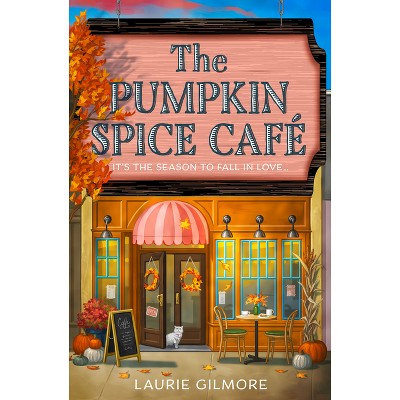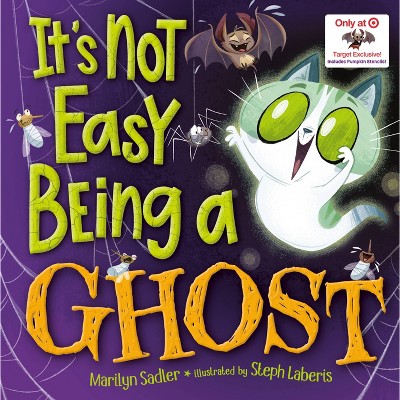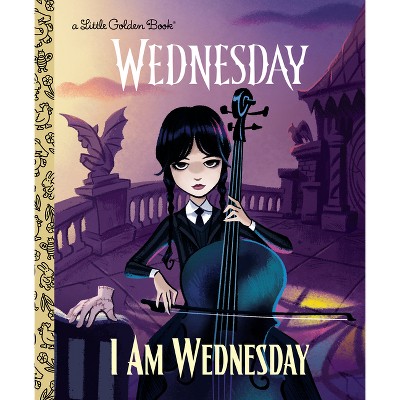Sponsored

The Devil's Advocates - (Contributions to the Study of World Literature) by Thomas R Whissen (Hardcover)
In Stock
Sponsored
About this item
Highlights
- It is a feat to demystify decadence genially while dealing with unsavory material usually presented complicitously.
- About the Author: THOMAS REED WHISSEN is Professor of English at Wright State University.
- 158 Pages
- Literary Criticism, Semiotics & Theory
- Series Name: Contributions to the Study of World Literature
Description
About the Book
It is a feat to demystify decadence genially while dealing with unsavory material usually presented complicitously. But Whissen achieves even more. He is not looking at counterculture literature but at mainstream literature in which the reader either senses something decadent in the writer's attitude or identifies some rhetorical device associated with the decadence. . . . He focuses chiefly on authors who have been studied from other perspectives (e.g., Gide, Mann, James, Dinesen) or who have hardly been studied at all (e.g., Maugham, Firbank, Capote, Suesskind, Stephen King). Choice
As a distinct literary movement, decadence made its brief appearance in the last two decades of the nineteenth century. As a theme and a philosophical posture, however, it continues to maintain a hold on the Western literary imagination. The first writer to examine the pervasive influence of decadence on modern literature, Whissen approaches the decadent vision as an attempt to come to terms with a world in decline, rather than as a transient literary fad. He explores the ways in which decadence functions not only in modern literature but in modern life, arguing that if we fail to notice the elements of decadence in literature, it is because they are now such an accepted part of our reality that we do not recognize them as decadent.
Whissen discusses two major strains of decadence that originated in Oscar Wilde's day and have continued to influence modern literature. One is the decadent work, a narrative infused with a conscious, committed self-indulgence that serves both as solace and as a form of rebellion against the perceived ugliness and hypocrisy of the modern world. The other strain includes works that have decadence as their theme, such as Wilde's The Picture of Dorian Gray. In an analysis of the prototypic French decadent novel, Huysmans' Against Nature, the author identifies the primary elements that make up the decadent temper: narcissism, masochism, irony, alienation, sophistication, vanity, sensitivity, nihilism, and a taste for uncommon or intense experience. He traces the development of these elements in works by Wilde, Henry James, Andre Gide, Thomas Mann, and Isak Dinesen, as well as two contemporary writers--Patrick Suskind and Paul Rudnick. A significant contribution to literary scholarship and criticism, this book will be of interest for courses or studies in modern and contemporary Western literature, humanities, social history, and social psychology.
Book Synopsis
It is a feat to demystify decadence genially while dealing with unsavory material usually presented complicitously. But Whissen achieves even more. He is not looking at counterculture literature but at mainstream literature in which the reader either senses something decadent in the writer's attitude or identifies some rhetorical device associated with the decadence. . . . He focuses chiefly on authors who have been studied from other perspectives (e.g., Gide, Mann, James, Dinesen) or who have hardly been studied at all (e.g., Maugham, Firbank, Capote, Suesskind, Stephen King). Choice
As a distinct literary movement, decadence made its brief appearance in the last two decades of the nineteenth century. As a theme and a philosophical posture, however, it continues to maintain a hold on the Western literary imagination. The first writer to examine the pervasive influence of decadence on modern literature, Whissen approaches the decadent vision as an attempt to come to terms with a world in decline, rather than as a transient literary fad. He explores the ways in which decadence functions not only in modern literature but in modern life, arguing that if we fail to notice the elements of decadence in literature, it is because they are now such an accepted part of our reality that we do not recognize them as decadent. Whissen discusses two major strains of decadence that originated in Oscar Wilde's day and have continued to influence modern literature. One is the decadent work, a narrative infused with a conscious, committed self-indulgence that serves both as solace and as a form of rebellion against the perceived ugliness and hypocrisy of the modern world. The other strain includes works that have decadence as their theme, such as Wilde's The Picture of Dorian Gray. In an analysis of the prototypic French decadent novel, Huysmans' Against Nature, the author identifies the primary elements that make up the decadent temper: narcissism, masochism, irony, alienation, sophistication, vanity, sensitivity, nihilism, and a taste for uncommon or intense experience. He traces the development of these elements in works by Wilde, Henry James, Andre Gide, Thomas Mann, and Isak Dinesen, as well as two contemporary writers--Patrick Suskind and Paul Rudnick. A significant contribution to literary scholarship and criticism, this book will be of interest for courses or studies in modern and contemporary Western literature, humanities, social history, and social psychology.Review Quotes
?It is a feat to demystify decadence genially while dealing with unsavory material usually presented complicitously. But Whissen achieves even more. He is not looking at counterculture literature but at mainstream literature in which the reader either senses something decadent in the writer's attitude or identifies some rhetorical device associated with the decadence. Basically, decadents evince a feeling of superiority toward the Other--assuming that the Other is the mass and the measure--for being Other, and they express this superiority in rhetoric that is self-reflective. So, although Whissen takes Huysmans' A rebours (1884) as the decadence breviary and C.E.M. Joad's Decadence (1948) as the key philosophical analysis (a fairly traditional procedure in the study of this movement), aside from Wilde and Beardsley, he focuses chiefly on authors who have been studied from other perspectives (e.g., Gide, Mann, James, Dinesen) or who have hardly been studied at all (e.g., Maugham, Firbank, Capote, Suesskind, Stephen King).?-Choice
"It is a feat to demystify decadence genially while dealing with unsavory material usually presented complicitously. But Whissen achieves even more. He is not looking at counterculture literature but at mainstream literature in which the reader either senses something decadent in the writer's attitude or identifies some rhetorical device associated with the decadence. Basically, decadents evince a feeling of superiority toward the Other--assuming that the Other is the mass and the measure--for being Other, and they express this superiority in rhetoric that is self-reflective. So, although Whissen takes Huysmans' A rebours (1884) as the decadence breviary and C.E.M. Joad's Decadence (1948) as the key philosophical analysis (a fairly traditional procedure in the study of this movement), aside from Wilde and Beardsley, he focuses chiefly on authors who have been studied from other perspectives (e.g., Gide, Mann, James, Dinesen) or who have hardly been studied at all (e.g., Maugham, Firbank, Capote, Suesskind, Stephen King)."-Choice
About the Author
THOMAS REED WHISSEN is Professor of English at Wright State University. He is the author of A Way with Words, Components of Composition, Isak Dinesen's Aesthetics, and journal articles and has contributed chapters on topics in literature and composition.Shipping details
Return details
Trending Book Deals






Discover more options





